Anna Ornstein, MD, is a Supervising Analyst at BPSI. Her remarks below originally appeared in the Spring-Summer 2020 issue of the BPSI Bulletin, which can be read here.
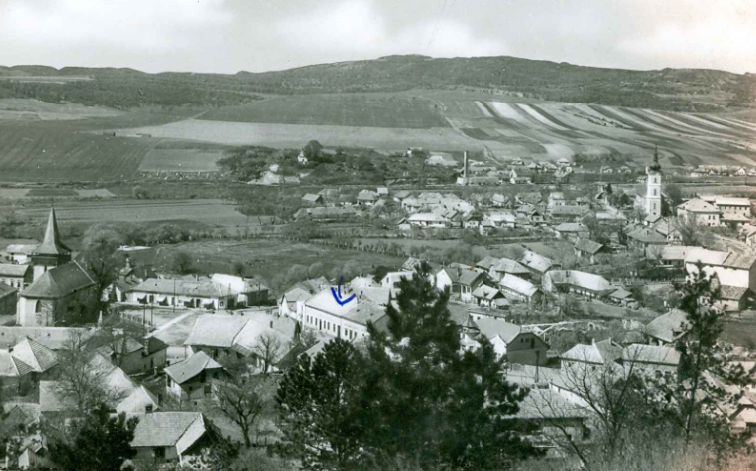
I don’t recall any time in my life when I was not aware of anti-Semitism. The village in northern Hungary, where I was born and lived the first fifteen years of my life, was an agricultural community; among its approximately 3,300 peasants lived forty Jewish families who constituted the middle class. They were totally socially and culturally separated from their neighbors. In one district that included several communities, all of us had one doctor, one pharmacist, one baker, one tailor, one shoemaker, and several shopkeepers.
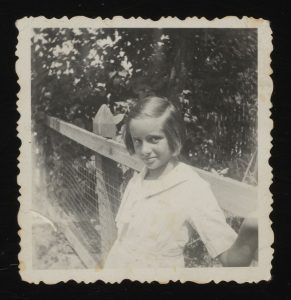
There was no high school in this village, nor was there a library or hospital. Those of us who were ambitious enough to enter high school either had to hire a tutor or have parents willing to prepare us for the end-of-year acceptance exam in a nearby city. By the time I was of age, it would have made no sense to try to get into a college preparatory school with an expectation of attending university upon graduation: severe anti-Semitism caused all universities to close their doors to Jewish girls and boys. My two brothers, older than me by five and three years respectively, attended college preparatory schools in a town 40 km from where we lived. My brothers had a great deal of influence on my intellectual and emotional development. Eventually, I attended a Jewish college preparatory school for one year, highly motivated, but with no expectation that university would be available to me.
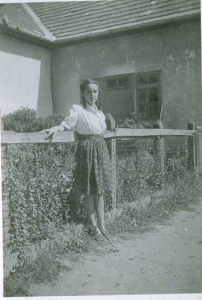
Anti-Semitism was not new to Hungary. Persecution of Jews began in the first millennium, soon after King Stephen converted the pagan Magyars to Christianity. The Hungarian Jews, who refused conversion, paid dearly. Every 300 years going forward the Hungarian Jews endured massacres and expulsions. But there were times when the impoverished nation needed to lift the dismal economic conditions,and the Jews were welcomed back. During these Hungarian “Golden Years,” between 1848-1914, the Jews established financial institutions and made noteworthy contributions to art, literature, medicine, and law. During these fruitful periods of collaboration, the Jews were lulled into believing there was permanence in their new won status.
But once the monarchy lost World War I, new problems emerged: the ensuing anarchy brought a bloody communist regime to power. Many of the leaders of this transient regime were Jews and Admiral Horthy’s counter-revolution engulfed the Jews as scapegoats. His regime exploited the ever-present anti-Semitism, and Jews were restricted again. This coincided with Hitler’s rise to power in 1933. Germany’s military and cultural alliance with Hungary affected the Jews. Anti-Semitism became more vocal and more powerful; there were demands to eliminate the Jews from civil-service, the army, and other professions.
I still remember the ominous atmosphere in our home – every step we took was controlled by fear. We spoke in hushed tones; silences were interrupted by my father’s periodic sighs. Gone were the days when my mother would be preparing me and the other children of the village for our Hanukkah play. I remember when she managed to tame a dove to stay on my shoulder during the performance of Cinderella. I was aware of my parents’ struggle to maintain a semblance of normalcy at home. How did my parents remain functional in those long years of persecution and discrimination? What are the psychic forces that were summoned to cope with that increasing level of dread and anxiety over many years?
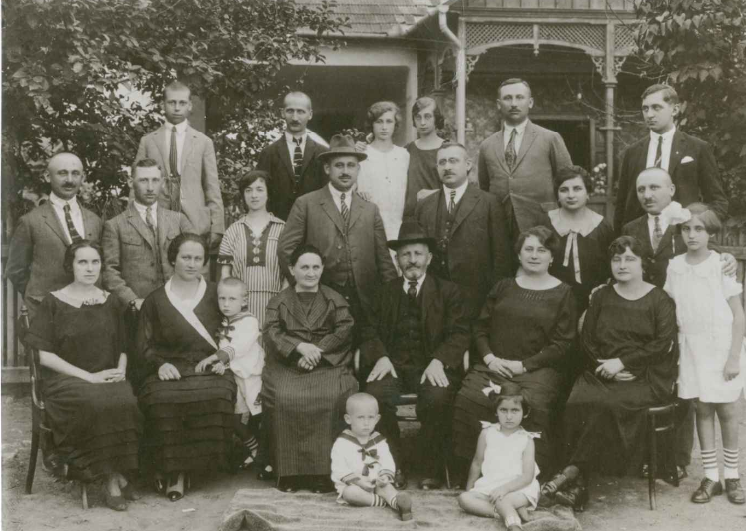
My father, and other heads of Jewish families, were arrested and taken to jail on trumped up charges. Young men were inducted into forced labor camps, and among them were my brothers, neither of whom survived the harsh conditions and severe treatment.
By 1940, the German war machine was in steady advance. The Jews of Hungary were condemned to a slow but sure death.
Increased restrictions on our lives did not prepare Hungary for the German occupation that occurred in March 1944. By then the Germans had suffered severe defeats on the Eastern front. The Hungarian Jews clung to the hope that the war would come to an end before they, too, suffered the same fate as the Jews of German-occupied Europe.
The very same day that German troops occupied Hungary, Jews were no longer permitted to use public transportation. They were arrested wherever they happened to be. At the time, I was living with my aunt in a distant city, but was determined to be with my parents. Taking a great chance, I made my way back to my village.
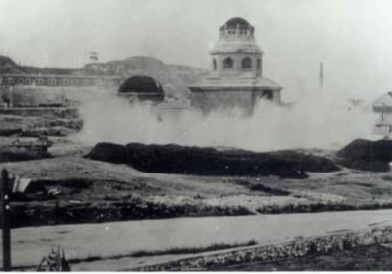
The occupation was swiftly followed by the deportation of the Jewish population from the countryside. Strangely, our arrival in Auschwitz in the first week of June 1944 coincided with the landing of American troops on the beaches of France. By the summer of 1944, my mother and I were inmates in a concentration camp in Plaszow, near Krakow. I recall our morning routine vividly, the shrill sound of the whistle waking us from a fitful sleep. We were not accustomed to our new beds: wooden slabs covered with straw mattresses and lice-infected blankets. After carrying heavy slabs of stone for ten hours during the day, we yearned for a few hours of sleep, but falling asleep hungry and with bedbugs feasting on our emaciated bodies was not easy.
In the morning, the whistle was blowing before the sun was up. Sitting up straight, a bit bewildered, my mother fell back on the mattress, trying to steal a few more minutes of sleep. I touched her shoulder gently and she looked at me pleadingly: “Could we stay just for a while?” She knew we could not. There was no escaping the quarry, in the heat without water or rest. She lifted her 46-year-old body and let me guide her to the increasingly long line to the latrine. Before we could get our thin soup that was to be our breakfast, we had to line up for the headcount that would last an hour. This completed the morning routine before we were to enter the quarry and begin the aimless carrying of the stones from one pile to the next.
The war was progressing without our awareness. Sometime in the early fall, I believe it was September, they herded us back to the train station and locked us in the cattle wagons again. Soon, we could see the electric barbed wire of Auschwitz. After some days in Auschwitz, we spent a long, cold winter in a labor camp in the Czech Republic. Our liberation did not come until May 8, 1945 – the last day of the war.
Seventy-One Years Later
Fear gripped me, as it did many Americans, on election night 2016. Memories of my adolescence returned as I began to feel a tightness in my throat and a heaviness in my chest. I asked myself: in what way did the experiences of those years resemble what is happening in this country now?
Discussions with members of my family and friends were not reassuring. We all agreed that there would be no extermination, no concentration camps in this country. We reflected that, though there have been many obstacles, progress has been made to ensure the integration of public schools, of voting rights, and of human rights. Advances were made, but there is still much to do. As Obama stated many times, “This almost perfect union needs a great deal of repair.” Not all members of the Union have been equally protected by the Constitution, and the progress that began around the middle of the 20th century is likely to come to a halt. We have to remember that, even under the most “normal” conditions, our laws have been written by people in powerful positions, to secure their stations in society forever.
The behavior of the president over the last four years affirmed our initial fears. From the beginning, there has been a search for scapegoats. In Europe, the Jews made the perfect targets. In this country, Muslims and immigrants have become the hated minority, and the ever-present anti-Semitism has been reactivated. People fleeing from violence in their home countries are portrayed by the president as murderers and criminals. When we consider that immigrants are badly needed in this country, anti-immigrant policies are patently self-defeating. The current anti-immigration rhetoric, fueled by deeply entrenched racial attitudes in this country, is reminiscent of the Nazis’ dependence on centuries old anti-Semitism to ensure the passage of anti-Jewish legislations.
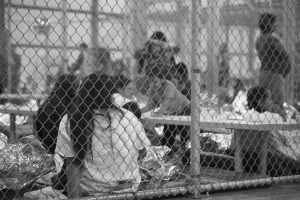
The president’s determination to stop immigration by all possible means created some of the most brutal images on the southern border. On the news, I saw a little girl from Honduras calling out a phone number her dad had given her in case of their separation. I was reminded of my good friend whose father gave her the phone number of a bank where he had deposited money for her. He hoped she would survive, and assumed he would not. My friend was 15 years old when she carved that number into her memory. It was five years later, at the end of the war, when she phoned the bank and was able to claim this inheritance. The little Honduran girl was not successful in getting the attention of the border police. The border police’s directive demanded that the child remain separated from her father. The president’s policy, the separation of families at the border, revives that terrible time when parents and children were divided with little guarantee of reunion.
The United States has known many periods of high anxiety that affected all ages, from school children to the elderly. During the Cold War, schools conducted periodic exercises to teach children to hide under their desks at the sound of an alarm, a response to an approaching danger and the threat of nuclear war. Schools no longer run such “Duck and Cover” air raid drills (they have been replaced by active shooter drills), but the threat remains. The nuclear danger will be with us forever, but the anxiety associated with it has become deeply repressed and resides in the background of our daily lives.
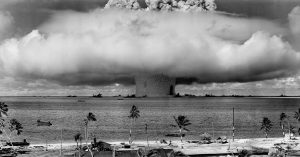
Most importantly, there is a crucial difference in the way high anxiety has been dealt with by previous presidents and the way it is being handled now. In the past, presidents took action to protect the population. Our current president enacts measures that protect primarily his own personal safety and wealth without consideration of the nation’s citizens. A self-centered and short-sighted attitude affects every aspect of his presidency, twisting issues that include climate change, gun safety, and politicizing scientific data to suit his personal needs.
In order to support big business, the president has undone regulations designed to address climate change, accelerating the already existing anxiety related to the health of the environment. “Eco-anxiety” is affecting children as young as 12. They are terrified and depressed by their knowledge of climate change. Some refuse to go to school: why should I study for a future when I will not be here? Those that come to school bring their supplies of anti-anxiety medication with them. While parents are proud of their children being knowledgeable and informed, they are also worried about their children being overwhelmed by the more and more dire environmental predictions. 1
As I thought about the young people of this generation and their anxiety about the future, I was reminded of a particular conversation I had with a young boy soon after we were collected from the ghetto. I was 17 years old and he was a few years younger. We were anticipating deportation when he asked me, “Do you think they will kill us?” Without hesitation, I said, “Yes.” I knew nothing about our future, but the whole Jewish population of the village was crowded into a few houses with inadequate sleeping arrangements and not enough food. There was no reason for us to think we had a future.
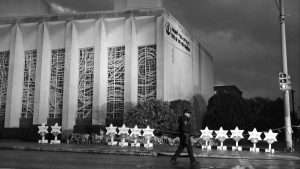
Recently I was watching my 18-year-old grandson protesting in front of Speaker Nancy Pelosi‘s office. As he spoke of the deadly California wildfires, he was appealing to the politicians to become more active regarding climate change. I was impressed by his seriousness and determination; he was committed to be active and have an impact. Is it up to young people, to teenagers, to create the environmental conditions that will continue the existence of living things on Earth? As a Jewish child, he has other fears – the recent shooting in a Pittsburgh synagogue and the rising anti-Semitism. I was deeply disturbed that this young man, my grandson, was witness to events that are part of my historical memory. Are my grandchildren experiencing anxieties similar to the ones I had at that age? As I listened to my grandson, another little boy’s image intruded into my memory. It was the anguished face of a 10-year-old I met when giving a school lecture on the Holocaust. He had learned for the first time that children and older people were killed upon arrival in Auschwitz. It pained me deeply to be the messenger of this cruel reality.
Among the young people I have had the privilege to speak with, there were two 30-year-old women struggling with an urgent question about their desire to start a family: is it fair, would they even consider, to bring new life into a world in which the future is so uncertain? They work for change, but fear their efforts are not enough to undo the damage that is being perpetrated by our own government.
The past affects our perception of the current situation. Having the Holocaust in one’s past may represent more than the ordinary level of distortion of the present. In writing this essay, it has been important to me to listen to how other people have been experiencing the current political climate. I found most people go about their daily business without focusing on climate change, gun control, or what is happening on the Southern border. The reality is that many of us are shielded from the immediate consequences of this political situation. For this very reason, we must become intentionally conscious of what is happening politically. While others are now enduring hardships, eventually we all will be affected by the racist, divisive, long-term effects of a chaotic and poorly functioning administration.
Freud (1917) contrasted “realistic anxiety” with “neurotic anxiety.” “Realistic anxiety,” he wrote, “strikes us as something very rational and intelligible. We may say of it that it is a reaction to the perception of an external danger—that is, of an injury which is expected and foreseen […] it may be regarded as a manifestation of the self-preservation instinct (pp. 393-394).” Put simply, realistic anxiety ought to give one the opportunity to consider flight or, if that is not possible, respond with defenses that protect the self from overwhelming levels of anxiety that would render a person dysfunctional.
I would suggest that the anxiety we experienced in the past before deportation and what many are experiencing in relation to the current political situation is not simply “realistic anxiety”—it is existential anxiety, anxiety that originates in fear of annihilation. I first encountered the description of annihilation anxiety in Victor Frankl’s book, Man’s Search for Meaning. Published in 1946, one year after the end of World War II, the book sold ten million copies in the United States. What explains this extraordinary success? Death and destruction appear to have been responsible for the emerging popularity of existential philosophy. Young people in particular were urgently searching for meaning in everyday life as the brutality of war, the industrialized nature of genocide, and the extraordinary number of casualties threatened a whole generation with cynicism and nihilism.
The United States appears to be in a situation similar to the one we were experiencing at the end of World War II. At that time, Europe was divided into two parts, the East and the West. Today, the United States is divided between those who adopt the president’s vision of the country and those who continue to adhere to the Constitution and the rule of law. America is at a critical junction: Will it choose to live without the possibility of clean air? Will it choose to continue the discrimination of people by race and religion? Will it reassert its claim to democracy? At the end of World War II, democracy triumphed in many ways around the world. Europe gave up their colonies, new countries emerged in Africa, and in the Middle East, Israel was born. Democracy was successful in overcoming the division in Europe and defeating communism. In the United States this is not the time to yield to regressive forces. This is the time, both individually and as a nation, to uphold the democratic principles our country was founded on: principles for which many have given their lives.
References
- Frankl, V. (1946). Man’s Search for Meaning. Boston: Beacon Press.
- Freud, S. (1917). Introductory Lectures on Psycho-Analysis. In J. Strachey (Ed.), The Standard Edition of the Complete Psychological Works of Sigmund Freud, Volume XVI (1916-1917): Introductory Lectures on Psycho-Analysis (Part III), 241-463. London: Hogarth Press.
- Orange, Donna M. (2017) Climate Crisis, Psychoanalysis and Radical Ethics. New York: Routledge.
- Video: McQuilkin, H., & Chakrabarti, M. (2020, January 27). On Holocaust Remembrance Day, Paying Tribute To Victims and Survivors. WBUR.
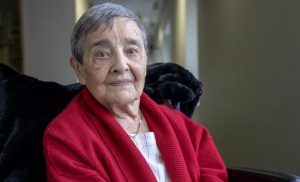
Anna Ornstein, MD, is a Professor Emerita of Child Psychiatry at the University of Cincinnati, a Training and Supervising Analyst at the Cincinnati Psychoanalytic Institute, a Lecturer in Psychiatry at Harvard University, and a Supervising Analyst at BPSI. Dr. Ornstein has written extensively on psychoanalytic theory and clinical practice and is the author of My Mother’s Eyes:Holocaust Memoirs of a Young Girl. She received the 2018 Kravitz Award in recognition of a lifetime of dedication to teaching about the Holocaust. Click here to watch a recent interview about her work.
Anna Ornstein can be contacted by email here.
***
The opinions or views expressed on the Boston Psychoanalytic Society & Institute (“BPSI”) social media platforms, including, but not limited to, blogs, Facebook posts and Twitter posts, represent the thoughts of individual contributors and are not necessarily those of the Boston Psychoanalytic Society & Institute or any of its directors, officers, employees, staff, board of directors, or members. All posts on BPSI social media platforms are for informational purposes only and should not be regarded as professional advice.
BPSI does not control or guarantee the accuracy, relevance, timeliness or completeness of information contained in its contributors’ posts and/or blog entries, or found by following any linked websites. BPSI will not be liable for any damages from the display or use of information posted on its website or social media platforms. BPSI cannot and does not authorize the use of copyrighted materials contained in linked websites.
- I have made frequent references to the climate crisis. Along with the crisis came the urgent need to create new sources of usable energy. The change from fossil fuel to clean sources of energy is a difficult process equiring not only financial and technical, but behavioral changes as well. This essay was completed prior to the onset of the COVID-19 pandemic. Strangely, the pandemic could change people’s behaviors, as reductions in carbon emissions have dovetailed with pandemic initiated shutdowns: videoconferencing, the limited use of cars, buses, and planes, and work from home options, have altered the air quality and use of fossil fuel. Many authors, David Grossman among them, have suggested that the pan- demic could transform our way of life. In relation to the climate, the changes would have to be substantive and affect everyone around the globe. The northern part of the globe would have to reduce its appetite for energy in every form, while the southern part would have to develop technol- ogy that has, in some places, already changed the desert into useful land. In North America, the division between those who have the means to consume energy discriminately and those who do not is stark. Climate Crisis, Psychoanalysis and Radical Ethics (Orange, 2017) argues for a strong connection between ethical conduct and climate change. For example, those who take frequent plane trips would have to consider the ethical implications of each flight, weighing the impact on the environment alongside personal interest. Certainly, the behavioral changes would require more than modification in air travel. In order to really learn the lessons of the pandemic, we would have to learn how to practice “radical ethics” in many areas in our lives.

